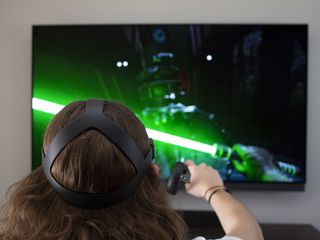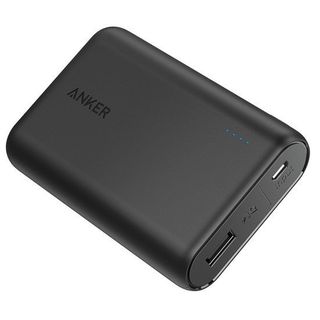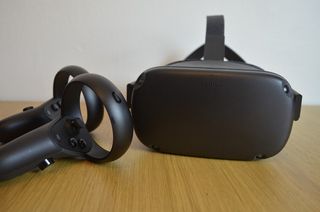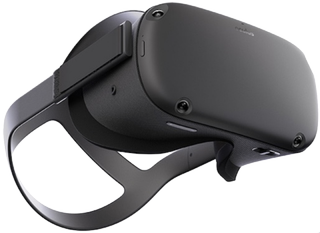Does casting Oculus Quest games reduce battery life?

Best Answer: No. The Oculus Quest was built with a mobile experience in mind and, surprisingly, casting to a TV or another external device will not negatively affect battery life in any noticeable way.
- Freedom of wireless VR: Oculus Quest (From $399 at Amazon)
- Keep playing longer: Anker Powercore 10000 ($30 at Amazon)
How long will the Oculus Quest battery last then?
The Oculus Quest is rated to last around three hours on a single charge. Some games will be more demanding than others and may bring that number closer to two hours, but the battery life is approximately the same as other portable gaming systems, such as the Nintendo Switch. While two and a half or three hours doesn't sound like a lot of time, most gaming experiences will still feel fulfilling even after a relatively short amount of time.
For example, popular titles like Beat Saber and Pistol Whip will get you sweating and your heart pumping in just a few minutes' time. After playing for even an hour, many of these more physically demanding games will leave your body as sore as a hard workout at the gym.
The biggest downside to the Quest's battery life out of the box appears when playing games with others. It's easy to get your friends and family immersed in VR thanks to the ease of taking the Quest anywhere and setting it up in a matter of seconds, but two and a half hours passes by incredibly quickly when you're passing it off between players. For those times, you're definitely going to want to pick up an extra battery pack to keep the battery humming along for several more hours. Just like a modern Android smartphone, the Oculus Quest uses a USB Type-C port to charge and that rechargeable battery pack you already have might even work to keep it juiced up.

Lengthy play sessions now possible
Anker makes lengthy play sessions on your Oculus Quest possible thanks to the Powercore 10000, a 10,000mAh battery pack that'll add several hours of VR game time to the Oculus Quest experience.
How does casting work? Are there any downsides?

Facebook outfitted the Oculus Quest with dedicated hardware to ensure the mobile experience was a solid as possible, and that includes dedicated processing cores for things like casting to TVs or powering the home screen. Despite not affecting battery life in any meaningful way, casting could affect performance in some games.
Be an expert in 5 minutes
Get the latest news from Android Central, your trusted companion in the world of Android
Occasionally, I've come across titles that will feature a distinct jutter or pause from time-to-time when casting, live-streaming, or recording gameplay. You'll also find that some games handle casting better than others. Pistol Whip, for instance, outputted a far lower resolution than other games at launch, and even included a full second delay in sound effects on the TV casted to when compared to what the player is experiencing in VR.
Facebook and game developers have improved casting quality and performance dramatically since the launch of the Oculus Quest, making the experience far better and a great way to share the experience with everyone in the room.
Just as you can easily record or stream gameplay from the Oculus Quest, sharing the screen with a Chromecast-ready device in your home is as easy as a few clicks. Simply navigate home, head to the sharing tab on the home bar at the bottom of your cone of vision, and click cast screen. You can also perform these same actions from the Oculus app on your smartphone by clicking the headset button on the top right of the app and then select any of the displays in the list to cast the display to (including right to your phone).
Alternatively, you can also connect your Oculus Quest to a gaming PC and use that to completely drive the experience. It'll add a wire to the side of your headset and force you to be tethered to a PC, but it enables richer, more graphically complex games to be played on your Oculus Quest. It also solves the problem of battery life and casting performance, so long as you have a gaming PC that can deliver solid VR performance.

Easy as it gets
The Oculus Quest is the easiest, hassle-free way to experience VR. No expensive PC, no wires, and no limits to the freedom of enjoying VR.

